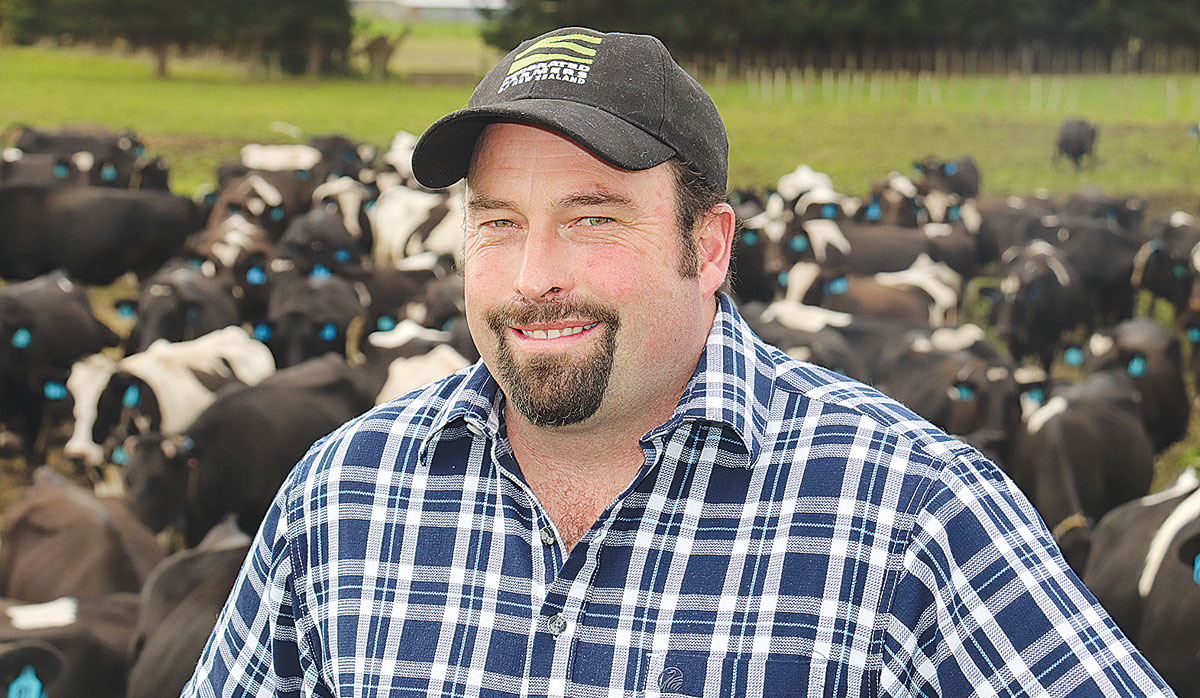Editorial: RMA reforms uproar
OPINION: The euphoria over the Government’s two new bills to replace the broken Resource Management Act is over.
Dairy farmers in the lower North Island are working on protecting next season, according to Federated Farmers dairy chair Richard McIntyre, who farms just north of the Horowhenua township of Levin.
The area has been suffering from a drought for the past few months, but in the last few weeks there has been some rain, which McIntyre says has helped the grass that was lying dormant to start growing again.
But he warns that some dairy farmers who were in the black financially before the drought, may now at the end of the season find themselves in the red.
He says while the pastures may look greener than they have been, the reality is that pasture covers are low and most farmers are still feeding out, cutting into their winter supplements.
“For example, our autumn calvers have not eaten a blade of grass for the last month. They are just in a paddock being fed supplement because that is how we can feed them the best now,” he says.
McIntyre says a lot of farmers are looking at their pasture which may have died and deciding whether they need to over sow to get things up and running. He says some farmers are looking at drying off some of their cows early with the aim of meeting the 1st of June target for their pasture covers. Others he says will be purchasing more supplements and applying nitrogen strategically to carry them through the winter and to make up for the reserves they have already cut into.
But McIntyre says there has been a positive side to the drought.
“It’s been relatively localised and there are areas not too far away where there are surpluses of feed. So, it’s been easier to source feed than in other years and the price has been more reasonable as there is a lot of surplus feed available and less demand for it.
 |
|---|
|
Feds dairy section chair Richard McIntyre |
“A lot of additional maize has been grown this year that hasn’t got a home and so it’s been possible to buy this at a reasonable price.”
On the negative side, McIntyre says farmers like him have had to buy extra feed they didn’t budget for, but the positive side is that the cost of feed is cheaper.
Looking to next season, McIntyre says this is the time of the year that everyone takes out their crystal ball and tries to predict what the payout may be. He says he favours a cautious conservative approach and says he’s working on a budget of the payout being around the $8 mark.
“You can always handle extra money coming into your budget but it’s hard to find money when things go wrong,” he says.
Global trade has been thrown into another bout of uncertainty following the overnight ruling by US Supreme Court, striking down President Donald Trump's decision to impose additional tariffs on trading partners.
Controls on the movement of fruit and vegetables in the Auckland suburb of Mt Roskill have been lifted.
Fonterra farmer shareholders and unit holders are in line for another payment in April.
Farmers are being encouraged to take a closer look at the refrigerants running inside their on-farm systems, as international and domestic pressure continues to build on high global warming potential (GWP) 400-series refrigerants.
As expected, Fonterra has lifted its 2025-26 forecast farmgate milk price mid-point to $9.50/kgMS.
Bovonic says a return on investment study has found its automated mastitis detection technology, QuadSense, is delivering financial, labour, and animal-health benefits on New Zealand dairy farms worth an estimated $29,547 per season.
OPINION: Staying with politics, with less than nine months to go before the general elections, there’s confusion in the Labour…
OPINION: Winston Peters' tirade against the free trade deal stitched with India may not be all political posturing by the…